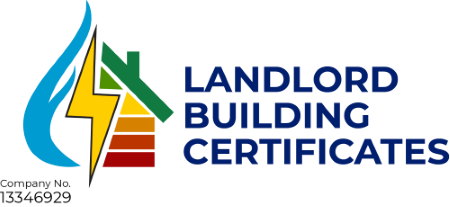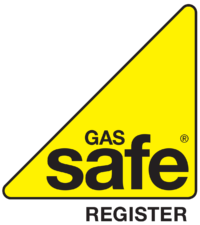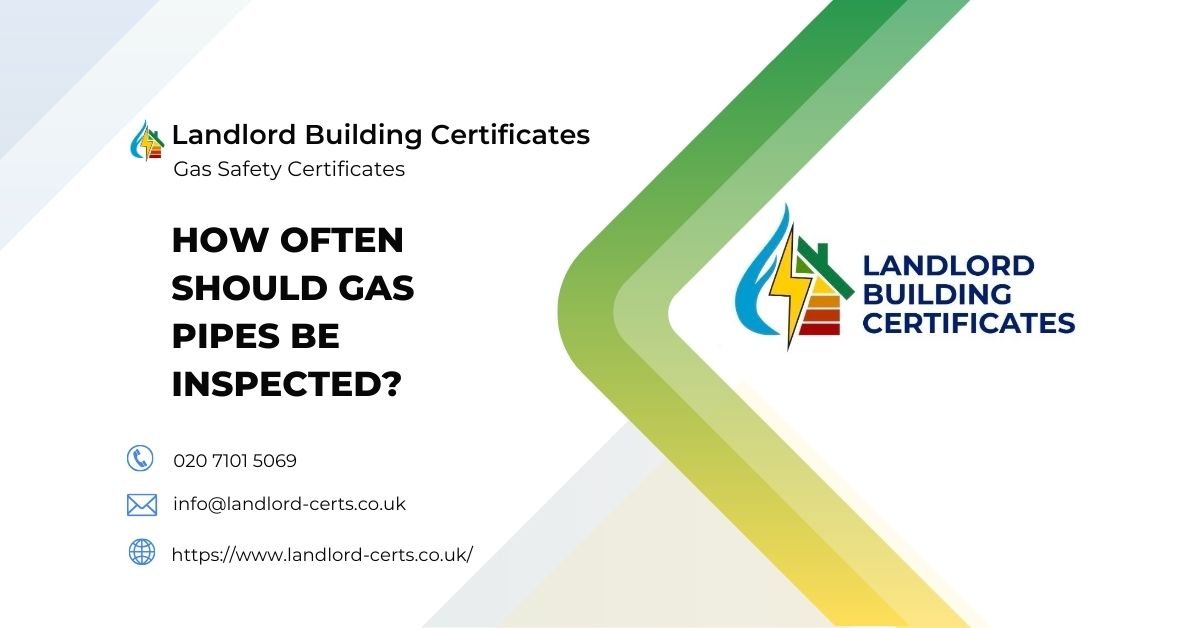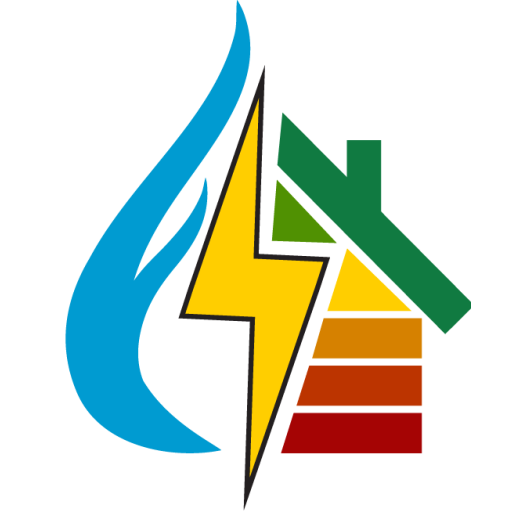How often should gas pipes be inspected in UK rental properties?
Gas pipes in residential rental properties across the UK, including London, must be inspected at least once every 12 months by a Gas Safe Registered Engineer. This annual inspection is a legal requirement under the Gas Safety (Installation and Use) Regulations 1998. For commercial premises, including HMOs, pipework must be fully inspected at least every five years, although many landlords choose to conduct annual checks to ensure compliance, safety and operational efficiency.
Here's What We Have Covered In This Article
Gas Pipe Inspection Frequency: The Official Guidelines
Residential Properties
All landlords in the UK are legally required to have a gas safety inspection carried out annually on all gas appliances, flues, and associated pipework in their residential properties. The inspection must be conducted by a Gas Safe Registered Engineer, and it should cover:
Key Inspection Elements
-
Visual assessment of gas pipework condition
-
Gas tightness testing
-
Inspection of gas appliances including boilers, cookers and heaters
-
Verification of ventilation and flue systems
A Gas Safety Certificate, commonly known as a CP12, must be issued following a successful inspection, and a copy must be provided to tenants within 28 days.
Commercial Buildings & HMOs
For commercial buildings and Houses in Multiple Occupation (HMOs), landlords are advised to arrange a full gas pipework inspection every five years. This frequency reflects increased system complexity and the higher safety risks associated with larger or shared-occupancy premises. The inspection should include:
Full Pipework Assessment
-
Pressure testing of entire internal pipework systems
-
Assessment of corrosion, integrity and secure mounting of pipe runs
-
Leak detection and photographic documentation
-
Identification of any modifications or structural changes that may affect pipe layout or safety
Some landlords choose to conduct these comprehensive inspections more frequently than every five years, particularly in high-use environments or older properties.
When Early or Additional Inspections Are Required
Additional inspections may be required outside the standard annual or five-year cycle. These include:
Common Triggers for Extra Inspections
-
Changes to the building layout or extensions
-
New gas appliances being installed
-
Tenant complaints about gas odours or malfunctioning systems
-
Visual signs of damage, rust or wear on exposed pipework
-
After renovation or major maintenance works involving walls, ceilings, or floors
Routine maintenance checks by engineers during servicing appointments can help flag when a full gas pipe inspection should be brought forward.
Gas Pipe Responsibility: Who Is In Charge?
Division of Responsibility
In most properties, the gas mains and supply infrastructure up to the emergency control valve (ECV) is the responsibility of the gas network provider. From the ECV onwards, including all internal gas pipework and appliances, responsibility lies with the property owner or landlord.
What Landlords Are Responsible For
-
Maintenance of all internal pipework and flues
-
Ensuring annual safety checks are carried out
-
Addressing issues identified during inspections
-
Keeping accurate records of inspections and any repairs
Tenants are responsible for reporting issues promptly and allowing access for inspections.
Service Pipework vs Internal Systems
The gas service pipe, which connects the property to the gas meter, is typically managed by the supplier. Everything beyond the meter, including copper or steel pipework running through the property to gas appliances, must be maintained and inspected by the landlord. Neglecting this duty can result in enforcement action from the Health and Safety Executive (HSE), fines, or legal restrictions on tenant eviction notices.
Inspection Procedure: What to Expect
What Engineers Check During an Inspection
When a Gas Safe engineer visits your property, they carry out a full set of checks to make sure everything is in working order. This includes testing the tightness of your gas system and examining every visible part of the pipework. They’ll also check appliances like boilers, gas fires, cookers, and hobs, as well as flues and ventilation.
Common Issues Found
Some of the most frequent problems picked up during inspections include:
-
Loose joints or fittings
-
Corrosion or pitting on older metal pipework
-
Cracks or brittleness in plastic pipework
-
Poor ventilation or blocked flues
-
Signs of tampering or DIY modifications
What Happens After the Inspection
After the inspection, the engineer will issue a report. If everything’s fine, you’ll receive a CP12 certificate. If there’s a problem, the report will explain what needs to be fixed, and in some cases, the engineer may need to cap the supply until repairs are done. Keeping a paper or digital copy of this certificate is important for your records and for proving legal compliance.
Certification: Gas Safety Certificate (CP12)
What Is a CP12 Certificate?
The CP12 certificate, also known as the Landlord Gas Safety Record, confirms that your gas appliances and pipework are safe to use. It’s a legal document and must be renewed every 12 months. Even if you don’t have any gas appliances, you still need this certificate if your property has a gas supply.
What’s Included in the Certificate
A valid CP12 includes:
-
List of all appliances and pipework inspected
-
Results of safety checks
-
Date of inspection
-
Address of the property
-
Name and registration number of the Gas Safe engineer
-
Any faults found and remedial actions required
When and How to Share It
You must give a copy to your existing tenants within 28 days of the inspection. If you have new tenants, they should be given a copy at the start of their tenancy. Keep a record of every certificate for at least two years in case you need to prove compliance later.
Pro Tip: Bundle boiler servicing with gas safety checks. This saves money and keeps heating systems running smoothly.
Manage Multiple Properties? Let Us Help
We offer bulk inspection services for landlords managing several flats or HMOs.
Who Can Carry Out a Gas Pipe Inspection?
Legal Requirements for Engineers
Only Gas Safe Registered Engineers are legally allowed to carry out gas inspections in the UK. It’s important to always check that the engineer you’re hiring is on the Gas Safe Register. You can ask to see their ID card, which will show the types of work they’re qualified to do.
Why Certification Matters
The Gas Safe Register replaced CORGI as the official gas registration body. Engineers must undergo rigorous training and assessment to qualify. Having an unregistered person carry out gas work is against the law and could result in dangerous conditions or invalidate your insurance.
How to Check a Registration
To verify if someone is registered:
-
Visit the Gas Safe Register website
-
Enter the engineer’s licence number or company name
-
Confirm they are qualified for the specific job, such as pipework inspection or appliance servicing
What Happens If You Don’t Comply?
Legal Consequences
Failing to arrange a gas safety check each year can lead to serious consequences. The Health and Safety Executive can issue fines, serve improvement notices, or prosecute landlords. In more severe cases, landlords could face imprisonment.
Eviction Restrictions
If you don’t have a valid CP12, you won’t be able to issue a Section 21 notice to evict a tenant. Courts require proof that the property meets all legal safety standards before considering eviction.
Insurance and Liability
Many landlord insurance policies require compliance with gas safety laws. If something goes wrong and you don’t have an up-to-date certificate, your policy may not cover any damage, repairs or legal claims.
Tenant Rights and Landlord Duties
Tenant Expectations
Tenants have the right to live in a safe home. That includes being protected from gas leaks and carbon monoxide. They should receive a copy of the gas safety certificate and be told when inspections are due.
Landlord Responsibilities
Landlords must:
-
Give tenants at least 24 hours’ notice before an inspection
-
Carry out any necessary repairs promptly
-
Ensure appliances are safe to use
-
Provide access to emergency repairs if something fails
Book Your Gas Safety Inspection Today
Ensure your property is safe and legally compliant with a quick and affordable gas check.
Gas Safety for Different Property Types
HMOs and Shared Accommodation
In Houses in Multiple Occupation (HMOs), the landlord is responsible for the safety of all gas installations throughout the property, even if individual tenants have their own space. This includes communal boilers, individual cookers, and any shared flues or pipework.
Properties with Sublets
If a property is sublet, the original landlord remains legally responsible for gas safety unless they can prove that responsibility has been clearly passed to the subletting tenant through a contractual agreement. In most cases, the original landlord still needs to organise annual checks.
Tenant-Owned Gas Appliances
If a tenant brings in their own gas cooker or other appliance, the landlord is not responsible for maintaining that appliance. However, the pipework and connections to the appliance still fall under the landlord’s responsibilities. A gas safety check will still include these elements to ensure safe operation.
Planning and Scheduling Your Inspections
Best Times to Book
Most landlords find it easier to arrange inspections during quieter periods, such as spring or summer. Booking well ahead of winter ensures heating systems are in good working condition before demand increases. It also gives time for any repairs.
Using the 2-Month Renewal Window
You can have your gas safety inspection carried out up to two months before the current certificate expires without losing time on the validity. The new certificate will still retain the original expiry date, helping you avoid last-minute bookings or lapses in compliance.
Tips for Staying Organised
-
Set calendar reminders each year
-
Use a property management system to track certificates
-
Build a relationship with a local Gas Safe engineer for regular visits
Choosing a Qualified Inspection Company
What to Look For
-
Check their Gas Safe Register ID
-
Look at reviews and testimonials
-
Ask how long they’ve been working in your area
-
Confirm whether they offer follow-up repair services
Questions to Ask
-
Do they provide digital certificates?
-
Can they schedule annual reminders?
-
Do they cover all types of appliances and pipework?
Benefits of Local Experience
Companies familiar with Harrow and surrounding areas are likely to understand the local property stock, council standards and tenant expectations. This can make appointments quicker and easier, especially in blocks or HMOs.
How Much Do Inspections Cost in London?
Prices can vary depending on the size of your property and number of appliances. Typical ranges are:
-
1-bed flat with boiler and cooker: £45 to £70
-
2-3 bed house with boiler, cooker, and fire: £60 to £100
-
Large HMOs or commercial premises: £120 and up
Ask if the quote includes VAT and whether there are additional charges for remedial work. Bundled services with boiler servicing may offer savings.
Landlord Gas Safety Checklist
-
Check engineer’s ID and qualifications
-
Ensure all gas appliances and pipework are accessible
-
Keep a copy of the CP12 for your records
-
Provide a copy to tenants within the deadline
Final Thoughts
Keeping up with gas safety inspections is a legal duty and part of being a responsible landlord. It protects your property, your tenants, and your peace of mind. Whether you’re managing a single flat or several properties across Harrow and Greater London, arranging regular checks and keeping your paperwork in order helps you stay on the right side of the law and avoid avoidable risks.





